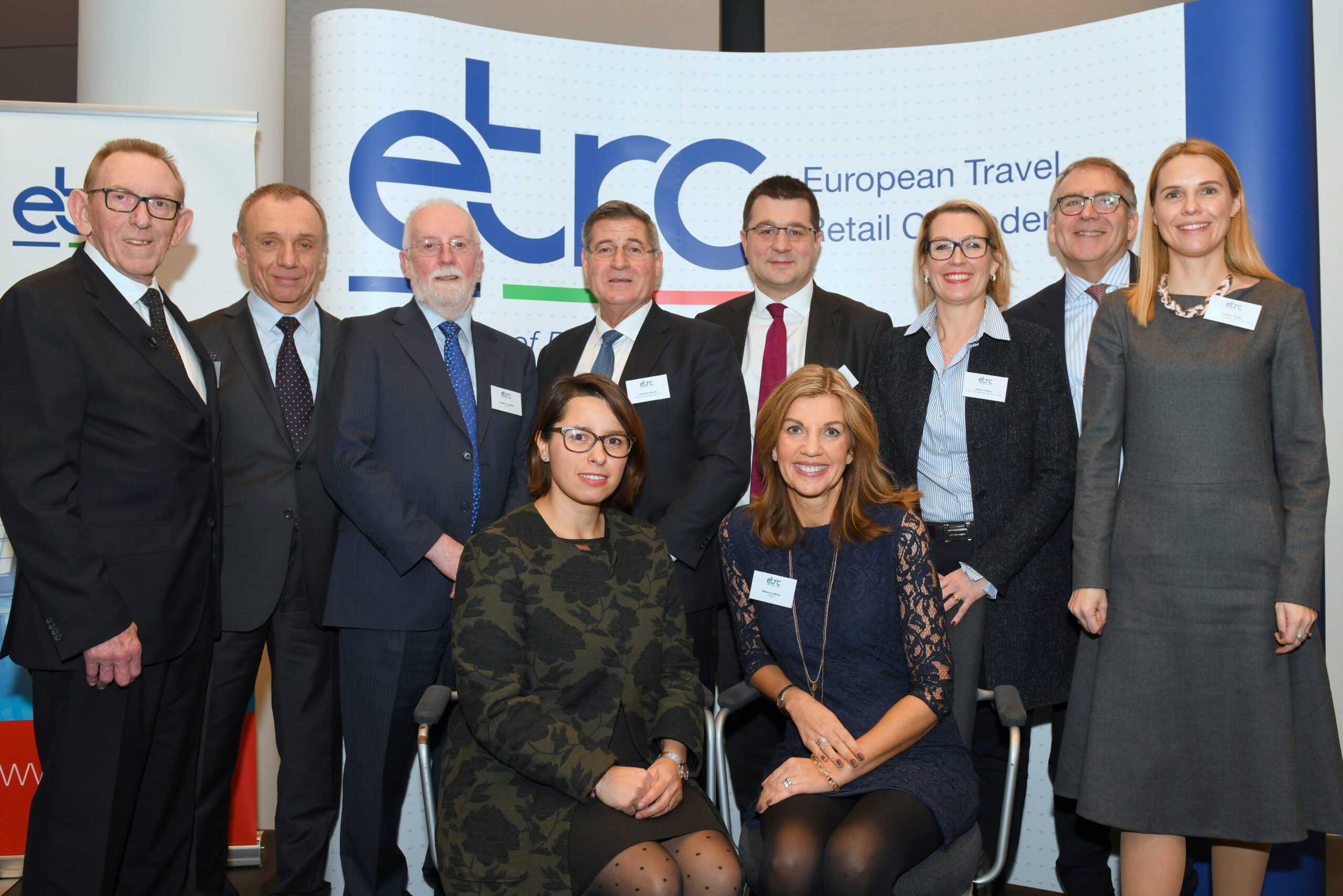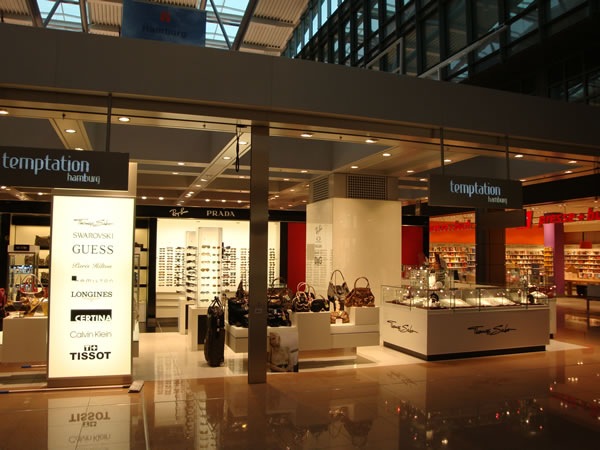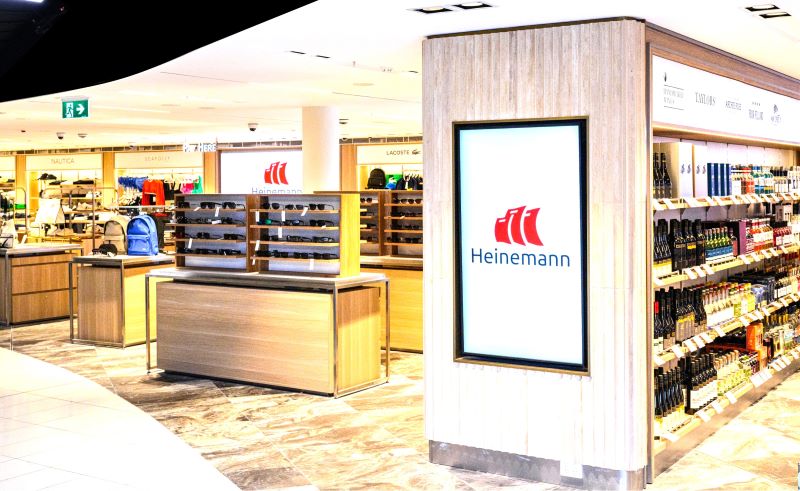
EUROPE. From Brexit to product labelling and from baggage rules to tobacco displays, the European Travel Retail Confederation’s (ETRC) new Secretary General Julie Lassaigne has a full agenda.
Lassaigne, who officially began her new role on 1 February, is excited to build on the organisation’s achievements to date and “bring the next chapter” in the ETRC story.
Speaking to The Moodie Davitt Report in London today (6 February), Lassaigne said a key challenge would be to continue to convince legislators of the duty free and travel retail industry’s special status, and that policies appropriate to domestic markets were not necessarily appropriate in the channel.
To achieve that, a stronger voice will be necessary, she insisted. “The duty free industry has tended to be more reactive than proactive and we have to work on this,” she said. “My challenge is to identify issues that might have an impact on the business, and to promote the channel among specific legislature.”
The industry’s voice will gain in strength too with increased participation in ETRC’s activities, she added. “Some important companies are still not members, so we will talk to them and try to convince them that their involvement would be in their best interests and for the greater good of the industry.”
The combination of challenges facing the industry – some of which are unprecedented – might be enough to change some minds. “We’ve seen every single product category affected by legislation. There is definitely an understanding that now we are not benefiting from tolerance [among policy makers], and we have to make our voice heard.”
Lassaigne is also seeking more engagement internally. She sees a generational shift taking place within the industry and expects the same level of passion from newer faces as in the past.
The ETRC works closely with a number of other associations and organisations, but Lassaigne sees potential for improved collaboration here, too. She cites airlines, the International Air Transport Association (IATA) and the maritime channel as priorities.
Top of the agenda
Today, Lassaigne’s list of priorities is long, led by tobacco and alcohol legislation, digital labelling and baggage rules, along with – inevitably – Brexit.
The ETRC urged its members to prepare for all Brexit eventualities at its annual Business Forum in Amsterdam on 24 January, including a so-called hard Brexit that would see the UK leave the European Union on 29 March without a deal.

Although time is running out, much could happen this week in the build-up to a parliamentary vote on 14 February on the UK government’s revised withdrawal agreement.
“We all hope for clarity sooner rather than later, but our members will be ready for the return of duty free,” Lassaigne says.
She notes that it has been made clear that travellers to Europe will be able to benefit from duty free and tax free pricing in the event of no-deal Brexit. But it remains unclear what the position of the UK government will be in regards to inbound travellers and their shopping rights. Legislation still needs to be passed to mirror that in the EU and ensure an immediate return to duty free; the problem is the mountain of other legislation that needs to be passed on a wide variety of topics.
Lassaigne noted that the ETRC was nevertheless still involved behind the scenes in urging decision makers to act (as we recently reported).
“Governments tend to listen when we come at them with one voice.”
There is also much uncertainty surrounding potential tobacco and alcohol legislation. The impact of the Protocol to Eliminate the Illicit Trade in Tobacco Products (ITP) still remains to be seen, but the industry was boosted when ITP signatories agreed to postpone carrying out research into “the extent to which duty free contributes to the illicit trade of tobacco products”.
Trade associations such as ETRC have worked with governments and customs authorities to explain that duty free retail is one of the most tightly controlled channels in the world and is not being abused for criminal purposes.
On tobacco legislation and trade, Lassaigne says the ETRC’s role is to promote the travel retail industry as different to domestic markets, while convincing governments it is fighting hard to comply with legislation.

Labels and legislation
Proof that this approach works was recently seen in Ireland, Lassaigne said. The government there recently passed wide-ranging legislation governing the sale of alcohol products – but crucially the duty free and travel retail channel gained an exemption on some key measures, with the unique, global nature of the channel taken into account. These included minimum pricing and health warnings on labels.
Lassaigne sees digital labelling as an effective solution to complying with such legislation and avoiding the need for on-product labelling, which can take up valuable space on bottles. “It is a key objective of the future,” she said. “Our aim is to have legislation to allow digital labelling as the way to communication detailed information and health warnings.”
The ETRC trialled a new phone technology with Gebr Heinemann at Hamburg Airport recently, Lassaigne pointed out. Customers could use their smartphones to visit the ETRC website and then scan the barcodes of 10 items commonly purchased in duty free, including alcohol, confectionery and perfume. This ensured that they could read detailed product information required by EU regulations without covering packaging in text.
“My challenge is to identify issues that might have an impact on the business, and to promote the channel among specific legislature.”
“It was a real life environment for feedback and we received extremely encouraging results,” reported Lassaigne. “We could address strengths and weaknesses, and it showed there is still some work to be done.”
The aim in using a barcode scanning system is to make the process as effortless as possible, she noted. “Our objective is to come to a point where the system can be rolled out across all categories and in all languages. We have had great support from brands so far.”
However, there is much opposition to digital labelling among health NGOs and consumer organisation. Once more, a battle lies ahead in convincing legislators that duty free is a special case and Lassaigne is determined to visit member states and plead the industry’s case.

A similar fight could lay ahead with sugar regulations. For example, the UK government has launched a consultation on plans to restrict promotions of food and drink products high in fat, sugar and salt (HFSS). One scenario could see such products banned from sale at checkouts or at the front of stores, Lassaigne said.
“We are currently consulting with members to build a strong position on why we are different as an industry; we are not about everyday consumption. Gifting is important in travel retail and there is very different shopper behaviour.”
One final issue highlighted by Lassaigne is the need to advocate bringing airport shopping onboard free of charge in addition to hand luggage, and avoiding one bag rules. Proposed legislation in 2013 on the issue was blocked because of a dispute between the UK and Spain over Gibraltar Airport.
But Brexit opens the door to that legislation getting another look in the second half of this year. “It is very important in the protection of the retail channel and for consumer confidence,” Lassaigne commented. “People are not sure what they can and cannot do.”
“We are not benefiting from tolerance [among policy makers] and we have to make our voice heard.”
She pointed to the example of recent regulations in the Middle East restricting carry-on luggage, which has had a severe negative financial impact. “It is a clear battle for us to get legislation on this issue,” she said, but a previous European Court of Justice ruling that airport shopping is part of a passenger’s personal effects strengthens the ETRC’s case considerably.
It’s clear that many challenges ahead for Lassaigne and the ETRC in the never-ending cycle of lobbying on the industry’s behalf.
“This is the year to sensitise political states to our priorities and to promote key issues,” she concluded. “This is the reason I wanted the job. We are in a stronger position than we were years ago, and we need to work together to be successful.
“Governments tend to listen when we come at them with one voice. There are exciting times ahead.”












